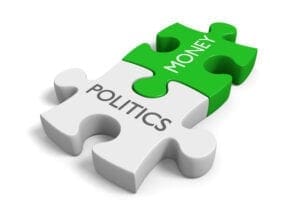
When giving investment advice the last thing I want to talk about is politics. But sadly, these two areas have become so intertwined in the past decade it’s hard to avoid, especially in an election year.
I would dare say that actions by politicians now play a larger role in overall market performance than actions by CEO’s it’s a sad but true reality. In particular, government tax policy plays an enormous role in how the overall market does. For this reason, each Presidential candidate’s tax plan should be something looked at in great depth before casting your vote.
Joe Biden make no apologies for his desire to raise taxes, particularly for those in high income tax brackets. It would be easy to pay little attention to what he is proposing because most people reading this assume they won’t be impacted. However, I’m not sure that assumption would be accurate. One part of his tax plan, his proposed capital gains rate increase, is of particular concern to me.
For those who don’t know, capital gains tax is the tax you owe on the profit you make buying and selling things, particularly investments. For example, if you buy an investment property for $20,000 and sell it for $50,000 the $30,000 profit is potentially taxable at capital gain rates. In the same way, if you own stocks in the market, and then sell them for a profit you can potentially owe capital gains on what you made.
Currently, cap-gain rates are 0% 15% or 20% based on an individual’s income level. Vice President Biden has proposed doubling the rate for the highest earners to 40%. According to a study by the Urban-Brookings Tax Policy Center, increases in capital gains rates have historically led to massive selloffs which impact everyone invested in the market not just those in the top tax brackets.
For example in 1987, under Ronald Reagan, the top rate was raised from 20% to 28%. In the months prior to this tax hike taking effect, the sale of stocks and other equities rose by 60%. A similar event happened in 2012 when the top rate went from 15% to 23.8%. This time stock selling rose by 40%.
It would be fair to assume a doubling of the capital gains rates would result in a similar if not higher sell-off this time. The net result could be felt by everyone invested in the market as their account balances would likely drop along with the market. It is these unintended consequences of good intentions that can have a major impact on our economy and your account balance.
To be fair, I’m not sure I like President Trump’s fiscal policies much better, while I do support lower taxes as a way of producing economic growth. Reduced taxes in combination with increased government spending is a recipe for disaster. This President has consistently shown himself to be a spender, and as a result, deficits continue to spiral out of control. His plan has been to use artificially low rates as a way of keeping this runaway train on the rails. But, as my associate Ron Finke explained in a column several weeks back, this is not a real solution and will only serve to make the problems worse long-term.
Since I don’t think either candidate has a viable answer to the looming fiscal threat, what is the solution? In my opinion, we need massive reforms to all aspects of government fiscal policy. These include cleaning up our tax laws so everyone pays their fair share, massive reductions in government spending, and a return to market based interest rates. Sadly, I see very few people in Washington interested in such reforms.
Given all this, I can’t help but be pessimistic about what 2021 holds. That’s why I believe it’s important to work with a financial advisor who’s ready to make changes to your account if things start to go south. You will sleep better at night knowing you have done what you can to be prepared for whatever happens next.
